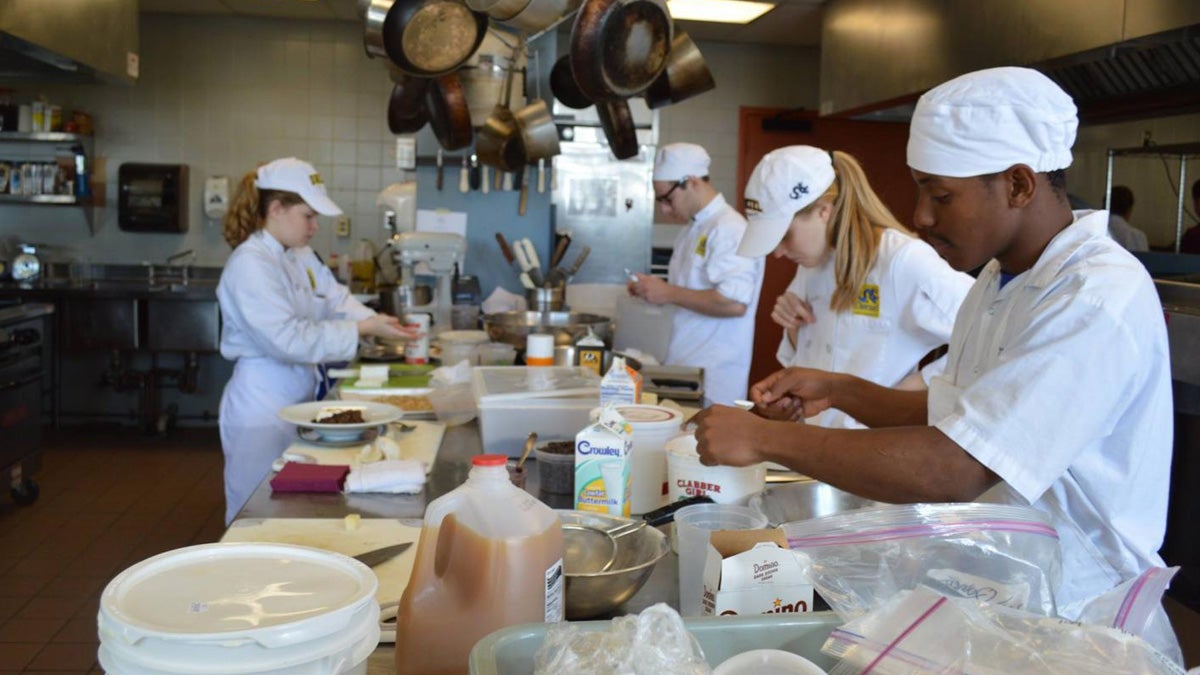Drexel food lab cooks up solutions to food waste problem

Students transform bruised and misshapen fruits and vegetables into cobblers, shakes and other products in the Drexel Food Lab. (Courtesy of Drexel University)
Even though many Americans go hungry and few are eating enough fruits and vegetables, more than a billion pounds of produce are discarded in landfills every year in the U.S.
It’s not just a social justice issue. Food rots in landfills and releases methane, a potent greenhouse gas.
Chefs at Drexel University’s Food Lab have been tackling both aspects of food waste by creating new recipes to repurpose bruised and unwanted produce from supermarkets.
Take, for instance, brown bananas. Simple freezing and pureeing can transform the overripe fruit into a healthy dessert.
“With about 15 to 20 minutes of active labor,” said Drexel food scientist Jonathan Deutsch, “you have a banana ice cream with 100 percent of the nutrition of a banana, no added ingredients.”
Deutsch and his students have been developing easy recipes like this as part of program with the EPA. Working with Brown’s Super Stores in West Philly, the team has come up with new twists on veggie chips, granola bars, and tomato jam—all made from food otherwise destined for the landfill.
In the case of the granola bars, cooks combined whole grains with cake from supermarket bakeries — an unhealthy but frequently donated item to soup kitchens.
“You’re basically taking advantage of the fat and sugar that’s already in something,” said Deutsch, “and sort of reverse engineering a healthier product out of it.”
This way of approaching food waste, he said, is also a business opportunity. Deutsch envisions an entirely new industry that would buy leftover food from supermarkets at a deep discount, do the processing, and then sell the food back to the store at a premium.
“It totally turns the food donation model around,” he said. “You could actually support job creation and health and actually mark up some of these products by adding some skilled value to them.”
An analysis of the group’s test run, published in the journal Food and Nutrition Sciences, suggests the profits could support two to four new employees per community.
Deutsch said the team hopes to test out such a venture this fall at the Center for Culinary Enterprises in West Philly.
WHYY is your source for fact-based, in-depth journalism and information. As a nonprofit organization, we rely on financial support from readers like you. Please give today.

